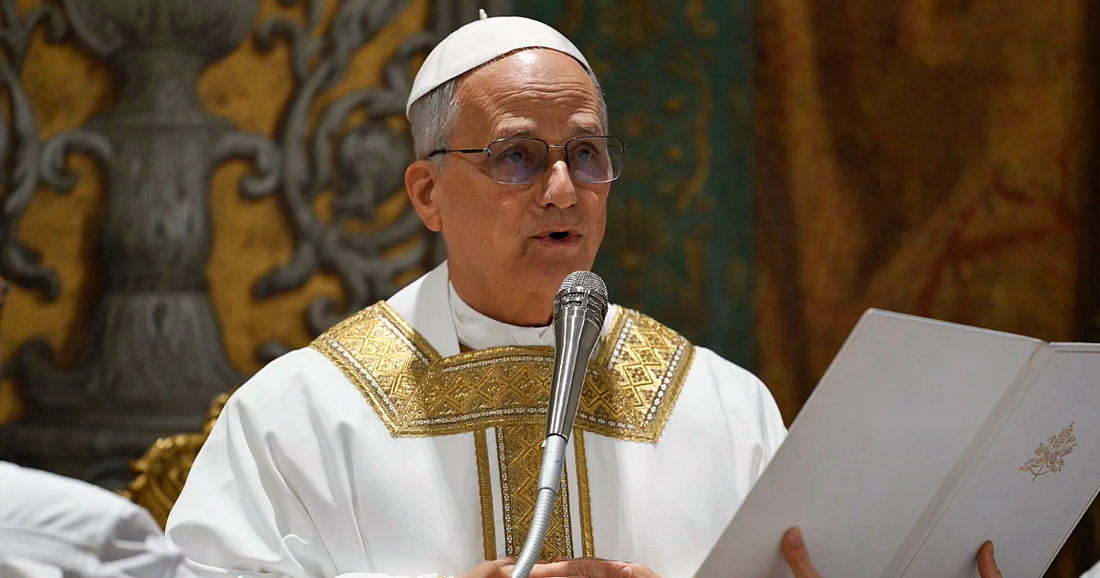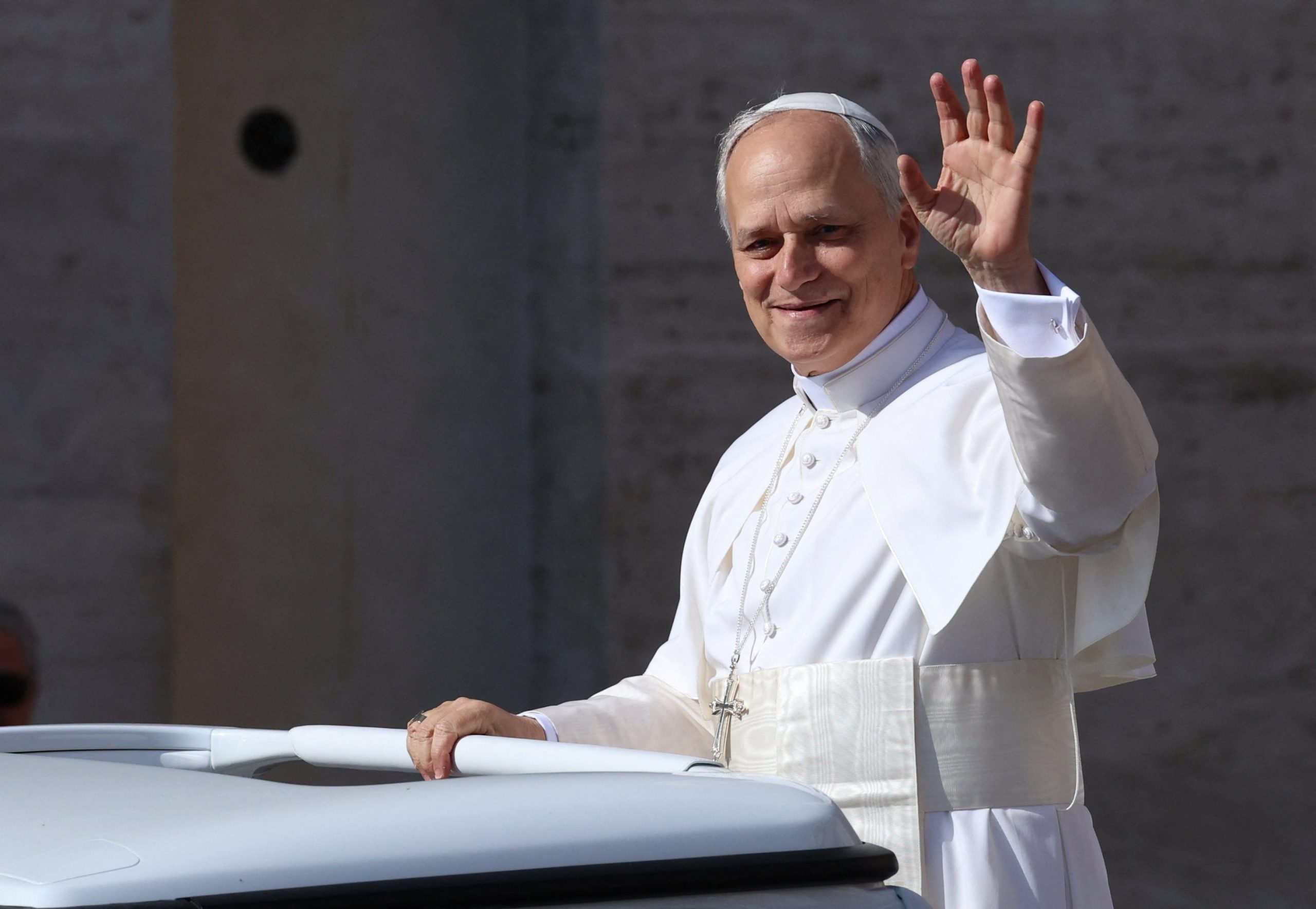On May 8, 2025, the Catholic Church entered a historic new chapter as Cardinal Robert Francis Prevost, a native of Chicago, Illinois, was elected as Pope Leo XIV, the 268th successor of Saint Peter. His election marks the first time an American-born prelate has ascended to the papacy, reflecting the Church’s broader commitment to global representation.
While much has been written about Pope Leo XIV’s pastoral work and theological scholarship, his personal journey—including his family roots, leadership values, and public stance on human dignity—offers deeper insight into how he might shape the future of the Catholic Church.

A Historic First: American Roots and Latin American Ministry
Born in 1955 in Chicago, Robert Francis Prevost was raised in a devout Catholic household. His early years were shaped by family, faith, and service. After completing undergraduate studies at Villanova University, an Augustinian institution in Pennsylvania, he entered the priesthood with a focus on missionary work and academic formation.
He earned a Doctorate in Canon Law from the Pontifical University of St. Thomas Aquinas (Angelicum) in Rome. His calling led him to Peru, where he served for more than a decade as Bishop of Chiclayo, a region facing social and economic challenges. There, he built strong relationships with local communities, expanded pastoral outreach, and promoted education and healthcare services.
In 2023, Pope Francis appointed him Prefect of the Dicastery for Bishops, a major Vatican office overseeing the appointment of bishops worldwide. His leadership style—grounded in collaboration, pastoral care, and social justice—gained recognition across the Roman Curia.

Choosing the Name “Leo XIV”: A Signal of Social Teaching
In adopting the name Leo XIV, the new pontiff drew a direct line to Pope Leo XIII, who served from 1878 to 1903. Leo XIII was the architect of Rerum Novarum, a groundbreaking encyclical on labor rights and economic justice. While Pope Leo XIV has not formally commented on the symbolism of his name, many observers interpret it as a commitment to Catholic social teaching, human dignity, and the role of the Church in defending the marginalized.
Family Support and Personal Humility
Pope Leo XIV’s family continues to live in the United States. His older brother, John Prevost, a retired Catholic school principal, has spoken in interviews with local Chicago media about his brother’s integrity, spiritual focus, and quiet strength.
According to John, Pope Leo XIV has always been guided by a centrist and compassionate approach to social issues, especially immigration, access to education, and care for the poor—values consistent with both Catholic doctrine and his years of service in Latin America.
While John did not comment directly on political figures or policies, his remarks reflected alignment with the Church’s long-standing position in favor of compassionate immigration reform and defense of human rights, echoing similar themes in Pope Francis’s public ministry.
No statements from Vatican officials have referenced any political endorsement or criticism by Pope Leo XIV. The pontiff himself has remained focused on global pastoral leadership rather than national political discourse.

Speaking Out for Human Dignity and Unity
In his first public homily as pope, delivered at St. Peter’s Basilica, Pope Leo XIV emphasized the Church’s responsibility to “protect every human life and heal divisions between people and nations.” His sermon underscored a message of unity, inclusion, and hope—a continuation of the values upheld by his predecessors.
Drawing on his experience in Peru and the U.S., Pope Leo XIV has consistently supported the rights of migrants, the dignity of labor, and the importance of faith communities in building peace. His alignment with Catholic teachings on social justice is evident in his use of foundational documents like Fratelli Tutti and Caritas in Veritate, which call for a global culture of encounter, solidarity, and mercy.

Personal Interests and Cultural Roots
Despite his demanding role, Pope Leo XIV is known for his down-to-earth personality. He is a long-time fan of Chicago White Sox baseball and Alianza Lima, a soccer club in Peru. In June 2025, he surprised fans by sending a video message that played during a White Sox home game, where he encouraged community spirit and shared his pride in his Chicago upbringing.
He is also said to enjoy films, particularly historical documentaries and spiritual dramas. His deep appreciation for art, culture, and education is consistent with his belief in an intellectually engaged Church that listens to people’s lived experiences.

A Vision for a Listening Church
According to Vatican spokesperson Matteo Bruni, Pope Leo XIV plans to continue the Synod on Synodality, an effort begun under Pope Francis to promote consultation and discernment among bishops, clergy, and laypeople. This model of governance highlights transparency, local engagement, and collective wisdom in Church decision-making.
Early reports suggest Pope Leo XIV will also strengthen efforts to combat clergy abuse, promote interfaith dialogue, and address the spiritual needs of youth in an increasingly secular world. While formal decrees are still forthcoming, his initial messaging suggests a Church that listens, learns, and accompanies.

Balancing Global Leadership with Family Values
What sets Pope Leo XIV apart is the balance between theological rigor and personal humility, formed through family values and grassroots ministry. His leadership is informed not just by policy or doctrine, but by decades of walking with people across cultures, learning their struggles, and advocating for justice.
While headlines may occasionally focus on his American background or global milestones, those closest to him—including his brother—point to his lifelong dedication to the Gospel, not political ideologies. As such, his papacy offers an opportunity to reframe the global Church’s mission through the lens of compassion, inclusion, and courage.

Conclusion
Pope Leo XIV’s background and values present a compelling vision for the Catholic Church. As the first American-born pope, he embodies the richness of intercultural dialogue and the depth of Catholic social teaching. From his family in Chicago to his missions in Peru and leadership in Rome, his journey reflects a consistent commitment to justice, humility, and the pastoral care of souls.
With the support of his family and the prayers of millions around the world, Pope Leo XIV steps into one of the most demanding spiritual roles on Earth—not as a ruler, but as a shepherd of hope for a diverse and ever-changing world.

Sources:
-
Vatican News – vaticannews.va
-
Holy See Press Office – press.vatican.va
-
Associated Press (AP) – apnews.com
-
Reuters – reuters.com
-
BBC News – bbc.com
-
The Washington Post – washingtonpost.com
-
Villanova University – villanova.edu
-
Pontifical University of St. Thomas Aquinas – pust.it
-
United States Conference of Catholic Bishops (USCCB) – usccb.org
-
National Catholic Reporter – ncronline.org
